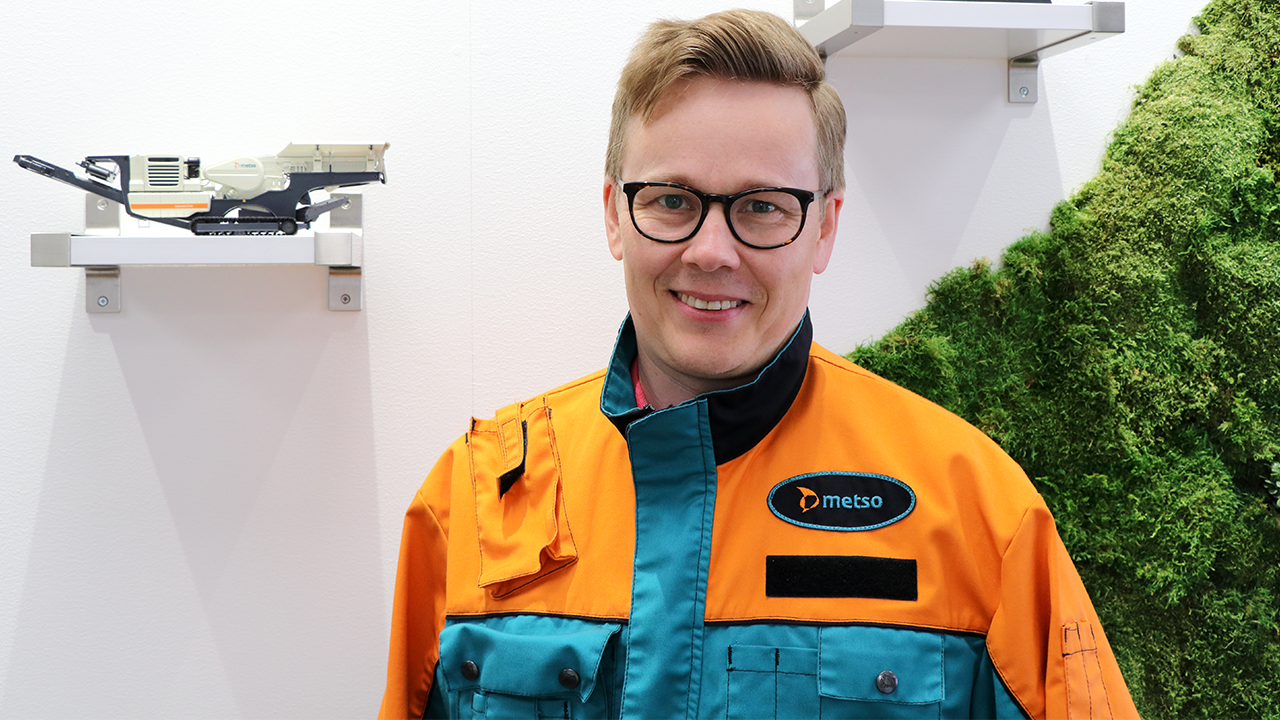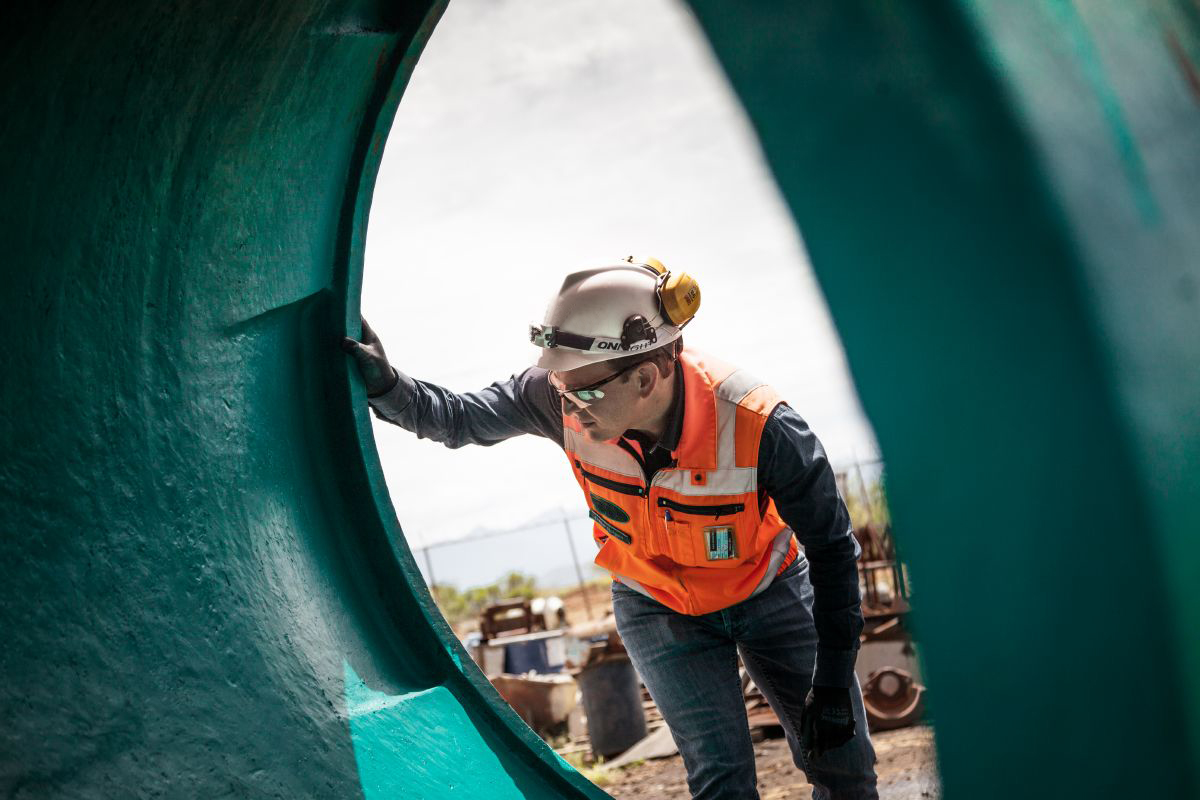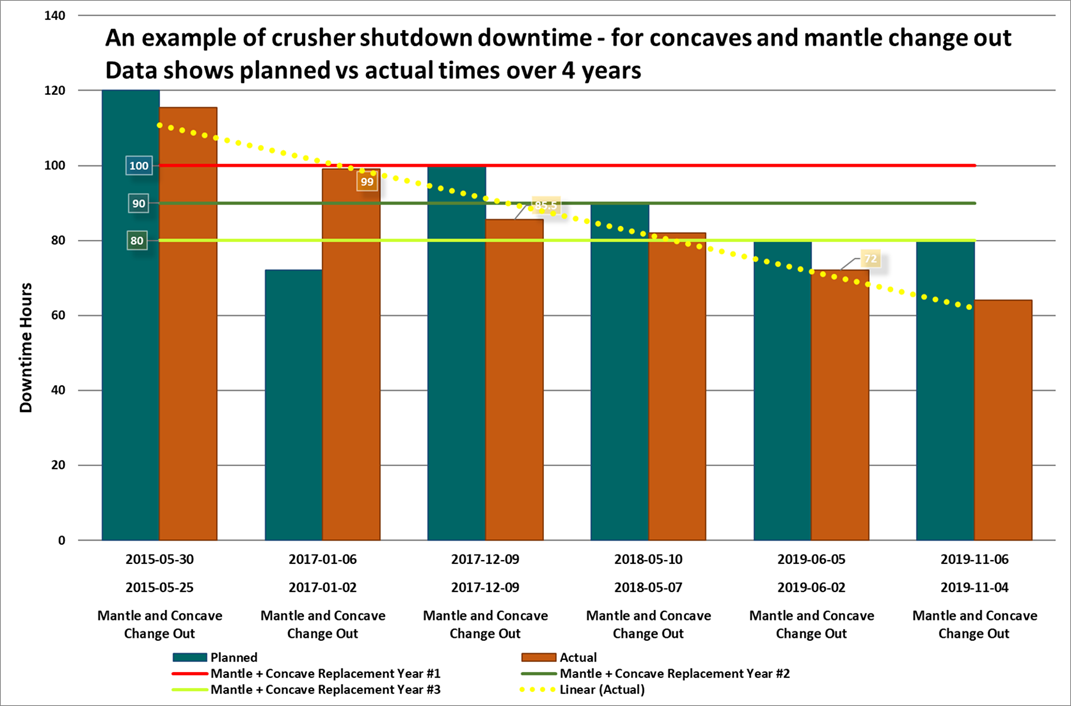One such method is the Shutdown Optimization Program, a unique service comprising of reliability engineering methods and a time and motion study, sometimes referred to as a Single Minute Exchange of Dies (SMED) analysis. The Shutdown Optimization Program focuses on making the replacement of parts as efficient and safe as possible.
Another method for improving uptime is the Chamber Optimization Program, which focuses on optimizing the wear parts of a crusher based on the ore and the process by utilizing sophisticated simulation software developed by Metso Outotec. Together, these two services make an invaluable combo in helping to maximize equipment availability and plant production. In the end, these benefits translate into more money in your pocket.
When should you consider Chamber Optimization?
Chamber Optimization comprises of re-engineering of a crusher’s wear parts to match the unique demands of the processed ore and the operation. It is a long-term development program that begins with an audit of the crushing process and lab testing of the ore.
Chamber Optimization can provide a much-needed availability boost in various situations. Typical optimization scenarios include:
- Re-designing the wear part layout so that there are fewer parts to replace – this reduces the duration of a shutdown;
- Extending the lifetime of the wear parts so that they do not have to be replaced as often;
- Using liner design to eliminate power spikes that cause unplanned downtime
- Matching the wear life of the liners to downstream equipment so that all wear parts in the plant can be replaced during a single shutdown.
In addition to increasing plant availability, Chamber Optimization can have a significant positive impact on the overall production of your plant through increased crusher throughput and improved feed to downstream processing stages. Since Chamber Optimization is a long-term program, improvements are often introduced step by step. For example, the development of the liners might start with wear life improvement and continue with tweaking the design to maximize crusher throughput.
hamber Optimization can have a significant positive impact on the overall production of your plant through increased crusher throughput and improved feed to downstream processing stages. Since Chamber Optimization is a long-term program, improvements are often introduced step by step. For example, the development of the liners might start with wear life improvement and continue with tweaking the design to maximize crusher throughput.
How does a typical Shutdown Optimization project proceed?
Like Chamber Optimization, Shutdown Optimization is a long-term development program that involves several consecutive shutdowns. It starts with our experts simply observing and analyzing a Concave and Mantle change out process and coming up with improvements related to factors such as preparation analysis, concave replacement method (best practices), tooling, training people and safety. SMED is typically introduced once the development has hit a plateau.
How does SMED work?
SMED is a lean manufacturing method created by Toyota, based on the use of time lapse videos to identify delays. Sometimes the people working in the shutdown are looking at it from too close a distance. Adding a camera provides a whole new perspective, and it is more reliable than somebody’s opinion – there’s no guesswork involved.
In a SMED analysis, several cameras are set up to record the entire shutdown. Each task is documented and recorded from start to finish, creating a timeline with thousands of image and data points for analysis. Photos and videos are then reviewed by Metso Outotec experts over a period of 1–2 weeks depending on the complexity and duration of the shutdown. A formal report is generated summarizing current performance and providing recommendations for improving the overall workflow and execution of the shutdown event. Focus areas include:
- Removing non-critical tasks and idle periods
- Better planning of tasks outside of the critical path
- Better coordination for parts, manpower & tooling
- Determining the optimal concave and mantle sequence and method
- Ensuring the proper tooling is used
What kind of results can clients expect?
The result is often a drastic reduction in downtime. For example, at the Chilean Los Bronces mine, several consecutive SMEDs carried out by us resulted in a 44-hour reduction in Primary Gyratory reline duration, slashing the time used from 100 hours to a mere 56 hours. At the Boliden Kevitsa mine in Finland, mantle replacement time has been cut in half, going from 48 to 24 hours over a period of 4 years, while the duration of a full reline has shortened from 120 hours to 64 hours. At the Milpillas mine in Mexico, Chamber Optimization increased concave segment wear life from 6 months to 2 years, eliminating several Primary Gyratory relines. At the Terrafame mine in Finland, wear life increases achieved through Chamber Optimization helped match Primary Gyratory relines with downstream equipment, yielding 5 days more uptime per year.



